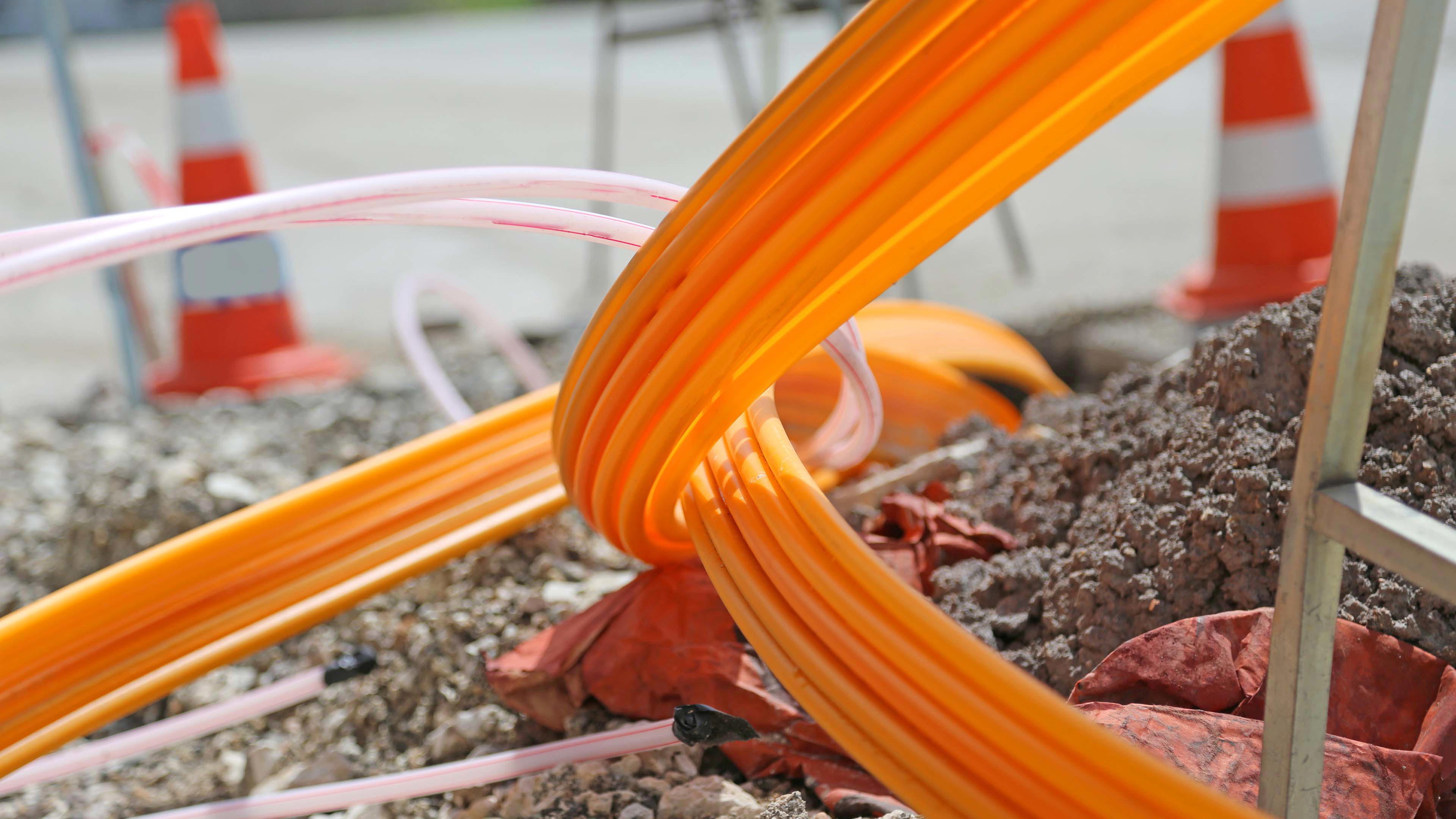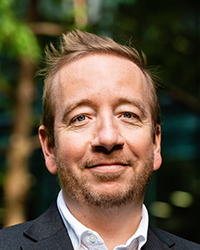

- Ben Poole
- Editorial Team, Treasury Management International (TMI)
The mass move to working from home due to the Covid-19 pandemic has highlighted an existing disparity between rural and urban areas regarding digital connectivity. For the companies that provide digital infrastructures, green bonds offer a way to finance the upgrade to fibre that aligns with the environmental and social goals of such a project.
A serious sustainability plan will, for many corporates, include ways to reduce emissions and wastage in existing business models, develop entirely new ones that are net zero in terms of carbon dioxide emissions by default, and scaling up renewable technologies.
Businesses seem to be willing to play their part in the sustainable transition – ING research released in April 2021[1] surveying 450 global corporations found that 57% are looking to accelerate their green transformation plans, but more than half of respondents (53%) say that Covid-19-related economic turbulence has reduced their capital expenditure budgets.
This is particularly important during a time when key staff have been working from home, relying on domestic internet and infrastructure to manage vast corporate balance sheets. This has highlighted the digital divide between rural and urban areas regarding internet access and speed of service.
July 2021’s Rural Business Report [2] from UK broadband provider Gigaclear found that 85% of rural businesses report their internet as being either poor but manageable (47%) or unmanageably poor (38%), while only 7% have full fibre optic (fibre) internet. The report, which surveyed 651 owners and operators of rural businesses in the UK, also found that 80% of businesses said better internet access would have the single biggest positive impact on their business recovery post-pandemic.
Funding the shift to green technologies
The treasury functions at telecommunications companies (telcos) operate in a highly acquisitive space where regular financing is critical, which we recently explored in TMI. When it comes to extending and enhancing the digital infrastructure that we all rely on for work and play, telco treasuries have the opportunity to tap into the sustainable finance market.
Fibre and 5G are a couple of the most significant investment areas for telcos, both of which have demonstrable green credentials. According to Spanish multinational telco Telefónica, fibre is a sizeable 85% more energy efficient than a copper network. [3] Elsewhere, a study jointly commissioned by Swisscom and trade association swisscleantech reports that emissions for 5G networks will be around 85% lower than current emissions from mobile networks. [4] The environmental case is clear for the technology. For telcos that have been interested in sustainability-linked funding to roll out such projects, investors have proved to be readily available.
Leonie Schreve, Global Head of Sustainable Finance, ING, comments: “We have already seen an uptake of sustainable finance in the past couple of years, but last year prompted a rethink in response to the question, ‘How should we do things differently?’. There is an immense drive now towards sustainability.”
In the telco space, the first green bonds were issued in 2019. In January that year, Telefónica issued a green bond of €1bn, which was fully allocated in May 2019. In February 2019, Verizon became the first US telco to issue a green bond, which raised almost $1bn in net proceeds. Since then, both firms have placed additional green bonds, with Telefónica closing its first sustainable perpetual hybrid bond issue for €1bn in February 2021 and Verizon settling its third green bond offering of $1bn in September of the same year. Elsewhere, Vodafone (€750m green bond in 2019), Nordic telco Telia (€500m green hybrid and SEK750m green bond, both in 2020), and Swisscom (€500m green bond in 2020) have tapped sustainable financing to support environmental projects.
With the case for equal access to business-strength broadband in rural areas more potent than ever, telcos have access to a market that can provide the funding to underpin the roll-out of the required infrastructure. For example, Telefónica’s entire green hybrid bond issued in 2020 is allocated to transform the firm’s landline communications network in Spain from copper to fibre to the home (FTTH). The telco says the project will create a network of the future that is more efficient and cleaner, that will also be the enabler of many digital services with a positive effect on society.
Driving social development
In Germany, Deutsche Glasfaser is an FTTH provider that has set itself the mission to deliver sustainable, thriving communities in the country’s rural areas. CFO Jens Müller explains that Deutsche Glasfaser’s goal is to open up most of the rural areas not yet served in Germany and provide them with a reliable digital infrastructure to help drive successful economic and social development.
“By taking advantage of the opportunities afforded by digitalisation, we can create what we call a ‘digital citizens’ network’,” Müller explains. “That means ensuring equal opportunities and connections to enable social and democratic participation and to improve quality of life and prosperity in regions beyond the cities.”
Rolling out fibre to rural areas also helps achieve climate-change policy goals. The expansion of the fibre network slows the densification of cities, mitigates traffic and housing issues, and helps control the cost of living. These issues are alleviated if people can live and work in rural areas while having a reliable high-speed internet connection.
“Fibre also produces significantly lower emissions than traditional copper networks, and the way we construct it is less invasive: in terms of technology, you don’t have to go as deep as with traditional networks,” Müller confirms. “The durability of fibre is also much higher, which means our network savings enable us to invest more in developing rural areas.”
When it comes to funding, the challenge for firms is to prove their green credentials to secure financing, as investors are increasingly taking sustainability into account in their decisions. For Müller, clarity over environmental, social, and governance (ESG) standards is critical in pushing forward a truly sustainable agenda.
“In terms of ESG disclosures, there is not enough transparency,” he notes. “It’s becoming more demanding for companies, and also for investors seeking compatibility, because there are several different standards: frameworks such as the Global Reporting Initiative (GRI), the Sustainability Accounting Standards Board (SASB) and the not-for-profit charity CDP. Harmonising ESG through full disclosure would make a lot of sense. The European Union Taxonomy regulation is still very new, so we’re still trying to understand its guidance and the implications. But I believe it’s an opportunity for the telco sector to highlight its environmental benefits, particularly in respect of fibre infrastructure and its ability to mitigate climate change through digitalisation.”
Changemakers need staying power
Deutsche Glasfaser has committed €7bn in the coming years to the roll-out of fast-speed internet infrastructure in Germany. This investment goes hand in hand with the implementation of important ESG targets. The firm is capturing critical ESG data to improve performance, reduce emissions, and address issues such as diversity, all of which are high on the agenda for the company’s management and shareholders.
“Through our investment in fibre, we’re also addressing sustainability KPIs [key performance indicators] such as power consumption per bit rate; a fibre network saves 17 times more energy per bit rate compared with a traditional copper network,” explains Müller. “If the whole of Germany switched to a real fibre network, we would save up to 1,100 MW of energy capacity compared with copper-based networks – that’s the equivalent of the output of a coal-fired power plant when it is fully ramped up.”
That level of potential for energy saving is a massive driver for transformation within the telco sector. To truly push forward with such a revolutionary change, the character and culture within the firm is vital, particularly in the treasury and finance space.
“You need openness and empathy,” concludes Müller. “You need to ask yourself what the person on the other side of the table is thinking and what’s on his or her agenda. But, most importantly, you need staying power. There are a lot of people who will tell you, ‘We have always done it this way. Why do we want to do it another way?’ You need to constantly push against this, so, without staying power, it’s hard to be a real changemaker.”




